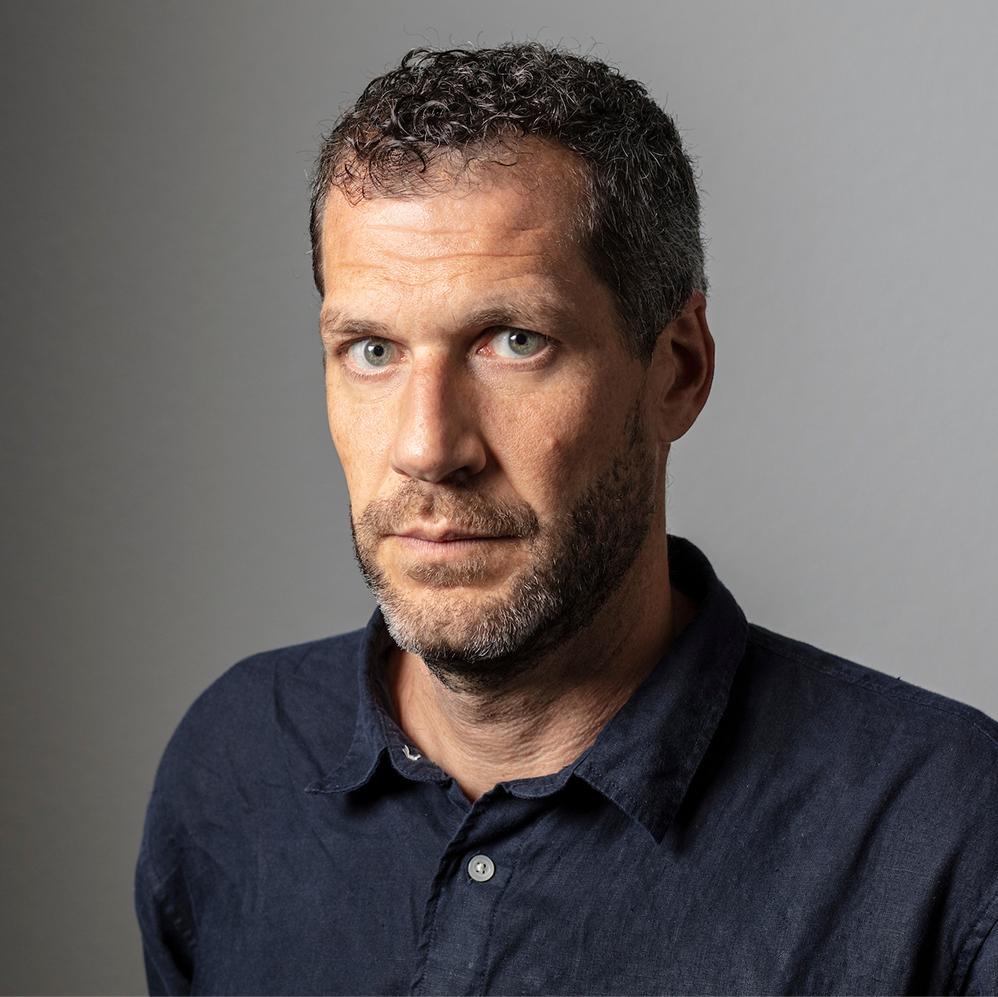Q1/2024 check-up: how the Swiss economy is faring

Inflation is nearly under control but some manufacturers are down in the dumps – these are the sector-by-sector highlights of the Swiss economy for the first three months of 2024.
1) Inflation slows but growth remains sluggish
Experts at the State Secretariat for Economic Affairs (SECO) are still forecasting weak growth for 2024, with gross domestic product expected to rise by 1.1%. “Until recently, the world economy presented a very mixed picture,” SECO wrote in mid-March.
Sign up for our weekly newsletters on the Swiss economy and other issues.
While growth is solid in the United States and China, it has stagnated in the eurozone, and even fallen in Germany, Swiss exporters’ biggest customer. Growth in the eurozone is likely to remain modest over the coming months, continuing to slow down Swiss exports.
The Swiss National Bank (SNB), meanwhile, caused a stir by cutting its key interest rate to 1.5% on March 21, down from 1.75%. Inflation in Switzerland has fallen steadily in recent months, from 1.7% in December to 1% in March. This is well below the 2.4% recorded in March in the eurozone and the 3.2% in February in the US.
This improvement in consumer prices prompted the SNB to act swiftly, whereas observers were not expecting a rate cut before June. The central bank is also optimistic about future price trends: it is expecting an inflation rate of 1.4% this year, well below the 2% threshold it has set itself.
2) A return to normal for Swiss watchmakers
After more than two years of uninterrupted growth, Swiss watch exports saw their first significant downturn in February (-3.8% year-on-year). “We have entered a normalisation phase,” said Jean-Philippe Bertschy, a watch expert at the Swiss bank Vontobel.
The drop in exports in February was particularly marked in China (-25.4%) and Hong Kong (-19%). However, these figures should be put in perspective, Bertschy cautions, as the month of February 2023 – the basis for comparison – saw a resurgence in watch sales in China after the lifting of pandemic-related restrictions imposed by Beijing. Vontobel therefore still forecasts 2-4% growth in exports in 2024.
This return-to-normal can also be seen in the second-hand market. The prices of the most sought-after steel watches – which could sometimes be resold on online sales sites at four to five times their shop price – have largely fallen. “The post-Covid boom was partly linked to the rise of cryptocurrencies and the savings accumulated by consumers during the health crisis. This return to normal levels has completely wiped out demand for speculators,” Bertschy stressed.

More
Swiss watch exports soar from one record year to the next
3) Machinery industry in the doldrums
The Swiss machinery, electrical equipment and metals (MEM) industry is going through a rough patch triggered by the economic difficulties facing Switzerland’s main trading partners, in particular Germany and China. In 2023, businesses in this sector, which employs more than 325,000 people in Switzerland, saw a slight decrease in sales (-0.8%) and a sharp drop in new orders (-8.4%).
According to the umbrella association Swissmem, however, the downturn could bottom out by mid-year, followed by a slow improvement. With 80% of its production slated for export, the MEM industries are highly dependent on the global economy and unhindered access to world markets.
The free-trade agreement signed in mid-March between members of the European Free Trade Association (EFTA) and India, which boasts a market of 1.4 billion people, has been warmly welcomed by the sector. The significant reduction or even gradual removal of import duties on industrial goods, which currently stand between 8% and 22%, will considerably boost the competitiveness of Swiss industry, “especially in relation to our competitors in China, the United Kingdom, the European Union and the United States, which have not yet concluded such an agreement”, Swissmem said in a press release.

More
Your favourite coffee was probably made by a Swiss machine
4) A bright winter for Swiss tourism
In early April, Switzerland Tourism declared this past winter ski season an outstanding success, although it does not yet have the final figures for overnight stays. It was even better at times than the 2022–2023 season, which was already very satisfactory, according to the umbrella organisation.
Up to the end of March, Swiss ski resorts had recorded a 5% increase in visitor numbers compared to the previous year. The trend was particularly positive in Ticino (+43%). “The southernmost canton benefited from abundant snowfall this season, even at low altitude,” explained Berno Stoffel, director of the Swiss Cableways Association, in a press release.
The Swiss tourism industry had another reason to rejoice. Although the winter season was primarily driven by domestic tourism, large numbers of guests from the European Union and North America flocked to the Swiss mountains. “After the increase last winter, we have once again seen a mass influx of American tourists, in particular young people,” said Marc Ungerer, director of Jungfrau Region Tourism, quoted in the Switzerland Tourism press release.

More
Locals driven out by luxury homes in Swiss mountains
5) Swiss pharma reaps the rewards of restructuring
The massive restructuring at Swiss pharma giant Novartis is starting to bear fruit. Both Novartis and its former generics division Sandoz, which spun off in October 2023, saw sales jump in their first full-year reporting as separate companies.
Novartis posted a 10% increase in sales in constant currencies for 2023, reaching $45 billion (CHF41 billion) and a net income of $8.6 billion. Sandoz sales last year were up by 7%, to $9.6 billion. In the fourth quarter alone, sales increased by 10%.
The results paid off for Novartis CEO Vas Narasimhan, who saw his compensation double to CHF16.2 million. This makes him one of the best-paid pharmaceutical CEOs in the world and the target of criticism from some investors and the Swiss public, who argued pay is rising too quickly.
CEO pay was not the main talking point at cross-town rival Roche, where CEO Thomas Schinecker is trying to revitalise the company’s pharmaceutical portfolio and investor enthusiasm. The strong Swiss franc combined with declining Covid test sales and more biosimilar competition caused sales to drop by 7% to CHF58.7 billion. In constant currencies, sales were up by 1%, however. Its core operating profit, which analysts use as a benchmark, fell by 13% in 2023.
Schinecker led a major review of Roche’s research pipeline last year, leading the company to offload less-promising drug candidates and projects. The goal, he told investors in March, is for the company to have 80% of its portfolio be the “best in a disease or best in class”.

More
Swiss pharma’s big bet on Slovenia
6) Food giants feel the pinch of higher prices
Vevey-based food and beverage giant Nestlé posted sales down 1.5% to CHF93 billion in 2023, under the impact of the strong franc and changing consumer habits. The company has raised prices in response to higher input costs over the last two years, prompting some shoppers to turn to less expensive brands. Nestlé CEO Mark Schneider tried to reassure shoppers, stating in February that “pricing will be a lot lower this year than last year”.
However, it’s unclear how quickly prices will drop, especially for chocolate. In March, cocoa prices surpassed $10,000 (CHF9,058) per tonne on the futures market, an all-time record. Prices are expected to stay high as poor weather and disease affect crop yields in the two major cocoa-producing countries of Ivory Coast and Ghana.
Meanwhile, the Basel-based, Chinese-owned agribusiness Syngenta reported an 18% drop in pre-tax profits and a 4% decline in sales, which it said was largely due to some markets reducing stocks of crop protection.
A key priority for the company is reducing its net debt, which was more than $20 billion, four times its pre-tax profits. The company had been working on a multi-billion-dollar listing on the Shanghai Stock Exchange to shrink that liability. In March, the company ditched the planned listing amid a downward slide for Chinese stocks.
7) Making Swiss banking safer
Switzerland’s government and parliament will spend the rest of the year debating how to make the country’s banking system safer following the collapse of Credit Suisse last year.
The failure of Credit Suisse has resulted in one gargantuan global bank in Switzerland – UBS, which took over Credit Suisse in 2023.
The enlarged UBS now has a balance sheet worth twice the size of Switzerland’s entire annual economic output. Politicians are deep in discussion on how to protect the economy if UBS goes bust.
The government recently released a list of 22 recommendations. “What happened at Credit Suisse must not be allowed to happen again,” said Finance Minister Karin Keller-Sutter.
Parliament will now debate the proposals. These include enshrining corporate responsibility in the Swiss legal code, allowing the financial regulator to issue fines, and expanding the capacity of the state and central bank to offer emergency liquidity.
In the meantime, some 3,000 employees working at the enlarged UBS in Switzerland face the prospect of redundancy later this year.
The Swiss financial sector labour force must absorb large numbers of bank workers as UBS seeks to save $13 billion in costs by 2026.

More
Why Swiss chocolate makers can’t win the battle against child labour
Edited by Virginie Mangin/Adapted from French by Julia Bassam/gw

In compliance with the JTI standards
More: SWI swissinfo.ch certified by the Journalism Trust Initiative




You can find an overview of ongoing debates with our journalists here. Please join us!
If you want to start a conversation about a topic raised in this article or want to report factual errors, email us at english@swissinfo.ch.